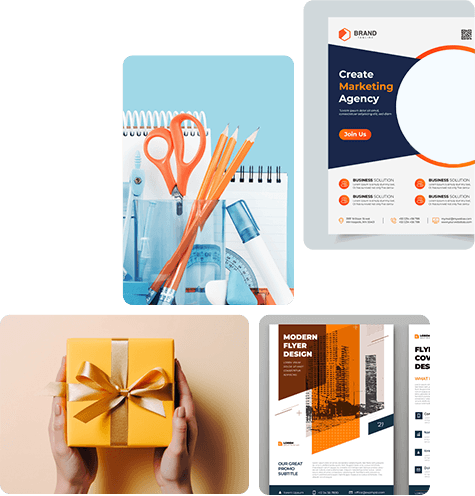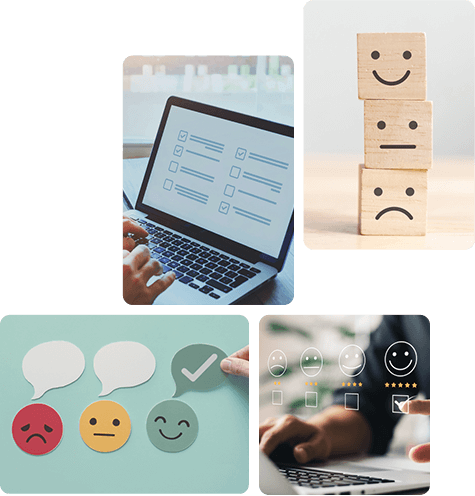Events as a marketing channel
No marketing activity is better than a marketing event, where you get to meet people in person—usually your prospects and customers. You can discuss business, chat, laugh, and build meaningful relationships with them that ultimately win their mindshare. Your prospects will also know they're not just doing business with a website and a logo, but rather the people behind it. Without stressing the importance of event marketing further, let's get started
Getting StartedHow to plan and execute event marketing for your business
Choose the right kind of event
It's important to choose the right event type, as events can be classified in many ways:
Locate the right place
Event marketing is all about creating memorable experiences for people with your brand. To achieve this, go to the places where your audience is. A simple approach is to identify your customers' primary locations.
If your business offers a tech-based solution, you can gather geographical data when customers sign up for your services. Alternatively, if you haven't collected this information, consider sending an email or making a call to gather the necessary data.
For businesses not in the technology sector—especially those selling physical products—pinpoint the cities where your sales are thriving and plan events in those locations. If you're launching a new business or solution and have yet to acquire customers, consider hosting events where your competitors are already successful.
At Zoho, we organize Zoholics every year to connect with our customers and enable them achieve their business goals through our tech solutions. With consent from our customers, we use our own marketing platform to gather insights on their locations and the challenges they encounter.
We then organize events at their locations to educate them on our latest solutions and best practices, ultimately enabling success for them. Using our own marketing platform, we derive insights, plan, execute, and manage the entire event end-to-end.

Plan your budget
Once your business has decided on the type of event and the right place, it's crucial to plan the budget. Marketing Plus enables you to create a marketing project, categorize it as event marketing, set the main objective, and, most importantly, allocate a budget for the event while tracking all related expenses. This ensures that your event spending is data-driven, and you can always stay on track. Here are some ideas to plan budget for your event.
Fixed costs
These are costs associated with sponsoring the event, and include booking the venue and purchasing event-related items, such as projectors, screens, displays, building stalls, employee expenses, etc.
Variable costs
These are expenses that often vary based on the situation, such as costs for food or refreshments, which can vary based on the number of attendees. It's a good practice to keep a buffer amount on hand to cover unexpected expenses that may arise during events.
Incentive costs
Incentive costs represent the amount of money you allocate to incentivize your prospect or customer with a free trial of your solution, reward them with gifts to convert them into customers, or express gratitude.
Miscellaneous costs
Events aren't always entirely predictable, and you can't always rely on your planned budget. Set aside a fund for unexpected expenses.

Interaction with audience members
How event marketing as a channel can help you market your business
While channels such as emails, social media, phone calls, and webpages can help you interact with your customers, events can provide a higher level of engagement and help achieve your marketing goals. The reason is straightforward: Your customers are talking to you, the human being. You can build a relationship with them in real time and customize your solutions according to their needs. When there's a human touch, you build trust. With trust established, your customers are more likely to continue the partnership with you.
Product launches
When your business is launching new products or solutions, events can enable you to reach a wider audience and convey the importance of your solutions more clearly and thoroughly. In contrast to online content, people generally have greater attention spans when meeting and listening to you in person—enabling you to promote your message even more effectively.
Sales opportunities
By listening to your audience during your event, you can understand their needs, recommend your solutions, and create direct selling opportunities. For existing customers, you can suggest additional solutions for their businesses as a cross-selling opportunity or upsell by offering additional value.
Networking opportunities
Events are the best way to meet your customers and build rapport. You can connect with customers from different industries, expand your network, and establish relationships.
Market research
No one is as well-positioned to suggest enhancements to your product or to propose a completely new product than an actual user. Events serve as the best ways to have deep conversations with customers, hear about their pain points, learn how they use your solution, and conduct thorough research to identify gaps in the market. Ultimately, these insights enable you to enhance your solutions and make them best-in-class.
Customer marketing
Customers are more likely to make purchases when they witness others buying your solution. The psychology of social proof consistently proves to be effective. Utilize events as an opportunity to identify satisfied customers, gather positive feedback, and collect testimonials about your product and brand. This creates a reservoir of testimonials that you can showcase to further establish trust and influence potential customers.
Community building
When you know your customers better, it's easier for you to group them and build a community of like-minded people who are loyal to your brand and can turn into evangelists. This means you can instantly broadcast all updates to them and leverage word-of-mouth marketing.
Media coverage
Press media often cover events, interview the attendees, and broadcast footage on their satellite channels. This results in more publicity and marketing for your business, enhances your visibility, and helps you stand apart from competitors.
How a unified marketing platform can help you manage your event marketing
A unified marketing platform is a tool that enables marketing teams to collaborate with team members, create content, and manage campaigns across multiple channels—all within a single integrated system. Platforms like Zoho Marketing Plus provide comprehensive solutions for marketing teams, allowing them to handle events efficiently across the three key stages of any event: before, during, and after.
Brainstorming
Collaborate with your team members to plan the type of customers/attendees you want to invite. Define the event type, identify the location, set your budget, and plan your creatives and promotions accordingly.
Contact segmentation
Based on your brainstorming discussion, segment your contact list and generate a list of people to invite. Segmentation can encompass factors such as geography, tenure as customers, products/services they use, their lifetime value, and so on.
Website and collateral
Create a microsite to promote your event and share marketing materials such as ebooks or event agenda brochures with attendees upon form completion. Integrate payment gateways to facilitate online ticket sales and set up an automated transactional email system to be triggered upon purchase.
Event promotions
Unified marketing platforms like Zoho Marketing Plus offer robust omnichannel engagement capabilities, allowing you to promote your event seamlessly across all marketing channels significantly enhance your event registration outcomes.
Attendee management
If you've sold event passes online, you can share a QR code with attendees and confirm its validity to identify them. This QR code can also assist them in navigating to the correct venue.
Backdrop management
With unified marketing platforms like Marketing Plus, you can effectively manage the event backdrop, oversee sessions, coordinate with speakers, and ensure that your agenda stays on track throughout the event. Features aren't limited to just these, however; by highlighting these two key aspects, we simply mean to cover the most essential components of your live event.
Get feedback from customers
You can use survey forms in Marketing Plus to automatically send emails to customers, collect feedback, and categorize them based on the responses. This enables you to assess the success of the event, identify shortcomings, and implement improvements for future events.
Outcome analysis
You can set goals in Analytics on Marketing Plus to track increases in the number of business inquiries you receive, your sales numbers, or even the amount of web traffic your site generates. These tangible metrics can help determine the success of the event. With a unified marketing platform, you can manage end-to-end activities for your event marketing and ensure you deliver the best possible experience to your audience.
Marketing Plus for your next event marketing
Getting started with your next event marketing initiative is simple with Zoho Marketing Plus, which equips you with all the essential event marketing software to deliver a connected experience from start to finish.
Start your next event marketing with Marketing Plus.
Getting Started15-day free trial. No credit card required.








